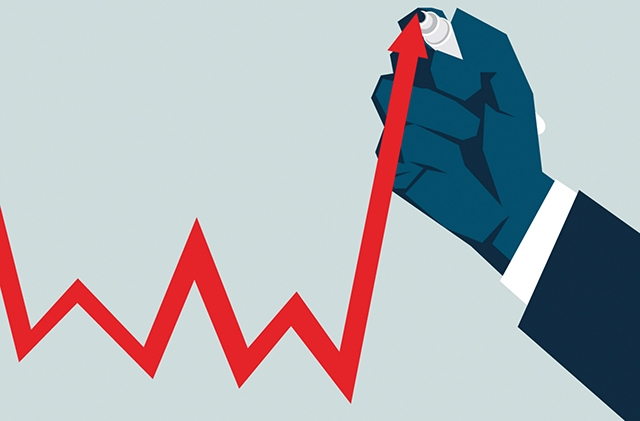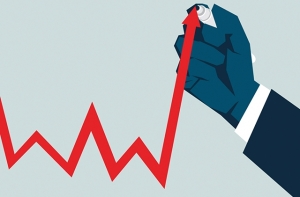Reasonable Inflation & Deflation
Op-Ed
In the most trivial assessment, human society is susceptible to various unwanted changes, like the one that is happening right now, which sees us faced with the seemingly insurmountable medical problem of Mother Nature’s viral attack. One of the effects of the unpredicted universal epidemic incident is the shattered national currencies all over the world, all of them going through inflationary pressure.
The standard thinking is that inflation is bad, and we the people don’t usually know why it occurs and when it is expected. If we knew, we would be much better off: because we are never ready for inflation, the general increase of prices on goods and services. In most cases, it appears right out of the blue, catching us napping. The higher the rate of inflation, the lower the purchasing power of our earnings. This is exactly what’s happening to our monetary darling Lari at this moment.
To make ‘inflation’ more explicable, let us throw in the opposite fiscal notion called ‘deflation,’ the general decrease of prices on goods and services which, if bookishly interpreted, is just as negative a pecuniary threat to our lifestyle. I thought, in the middle of the crisis we are going through right now, a talk like this could do a soothing service to people whose minds are currently set on financial deliberations of prospective character, dictated by the real-time events.
The history of inflation has it that it is normally followed by social alterations if not disturbances, consequently triggering so called hyperinflation, the gradually increasing and utterly fazing phase of a regular inflation. Without an iota of exaggeration, hyperinflation may very well act as a relentless murderer of any national currency. Hence, we must do our utmost to never have it happen in this country, and I am saying this, knowing that inflation has a psychological streak to it, and a consumer with that kind of mentality may unwittingly contribute to the hyper-sized degradation of our local currency, nervous and shrunk as it is anyway.
Inflation, which is directly dependent on prices as such, may also destabilize the situation in the country. A human mind is not easy to control and in critical situations, it may resort to certain unlawful moves, like getting richer at the expense of emergency-ridden fellow citizens. In order for us to keep safe from such a nasty prospect, we have to be on the alert. For instance, be extremely vigilant in terms of price formations and voluntary changes of prices on regular goods and services, because prices in the economy are like oxygen flow in our bodies. Prices dictate to the business community and the consuming population of the country what kind of shortages and surpluses our national economy might generate, and prompt them when and what to produce, in what quantities, and how much to consume as a result.
Inflation makes it difficult and sometimes impossible to determine the content and parameters of national economic output. Inflation changes the model of our social behavior, imposing a financial penalty on some of us and giving an economic chance to others. What is even more interesting is that inflation may harbor latent tax opportunities, in other words, the increase of taxes if employers are daring enough to allow raises, but usually the boosted salaries never catch up with the newly formed taxation structure. One of the darkest sides of inflation is the impossibility of getting the national currency back to its previous condition. Even if the government is smart and rich enough to adjust the prices and wages, it will never be able to reinstate the bygone days of consumption-supply balance. The normalization might even need to be assisted by the phase of an indispensable recession, and the slump may damage badly all of us the working folks.
So, if we get out of this crisis safe and sound, let us not expect too much too soon from our economy: we will have to wait for the good life we enjoyed before. Inflations are unpredictable, as I said, and their influence does not have to be exaggerated. The most popular economic analysis suggests that an inflation of less than 5% should not be terribly deleterious for any economy. There is no monolithic economic judgment about inflation in today’s world. Some specialists think that the ‘bad guy’ is the excessive money supply; others argue that too much spending and an inflationary state of mind should carry the blame. Whatever it is, ours is the final choice, and the choice cannot be any move that corrupts our currency, which seems to be weathered enough to know what the balance between inflation and deflation signifies.
By Nugzar B. Ruhadze
Image source: iStockphoto











